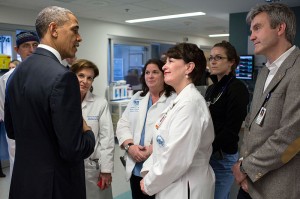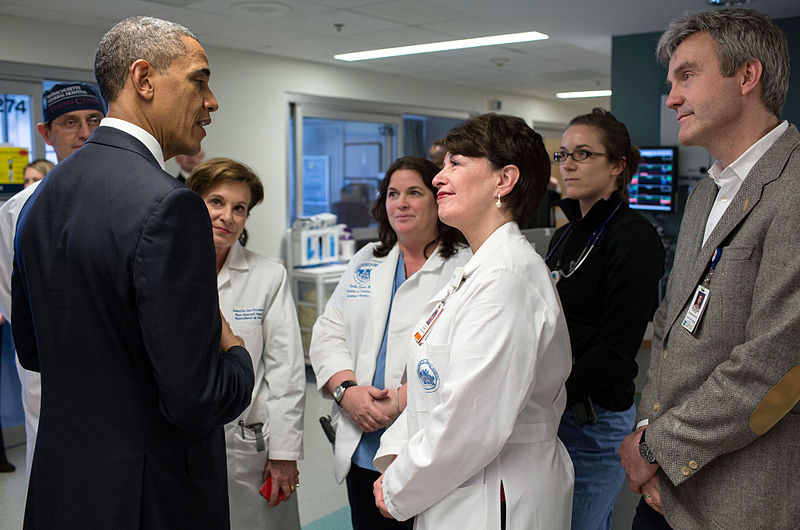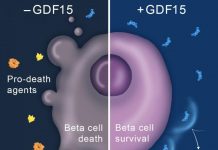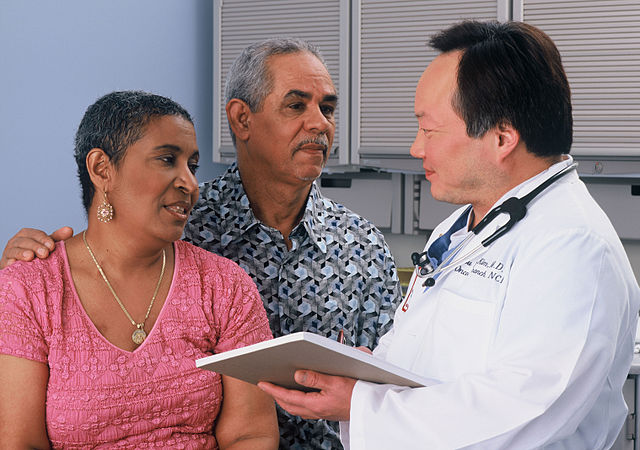Exciting news for people with Type 1 Diabetes. Bacillus Calmette-Guérin (BCG), a generic drug with over 90 years of clinical use and safety data, will move into phase 2 of testing after it reversed advanced type 1 diabetes in it’s phase 1 trial.
A phase II clinical trial testing the ability of the generic vaccine bacillus Calmette-Guérin (BCG) to reverse advanced type 1 diabetes has received approval from the U.S. Food and Drug Administration (FDA).

The approval of this trial, which will shortly begin enrolling qualified patients, was announced at the 75th Scientific Sessions of the American Diabetes Association (ADA) by Denise Faustman, MD, PhD, director of the Massachusetts General Hospital (MGH) Immunobiology Laboratory and principal investigator of the study.
The five-year trial will investigate whether repeat BCG vaccination can clinically improve type 1 diabetes in adults between 18 and 60 years of age who have small but still detectable levels of insulin secretion from the pancreas.
Faustman’s research team was the first group to document reversal of advanced type 1 diabetes in mice and subsequently completed a successful phase I human clinical trial of BCG vaccination. She announced the FDA approval to launch the phase II trial during her ADA presentation, “Low Levels of C-Peptide Have Clinical Significance for Established Type 1 Diabetes.”
Continue Reading Below ↓↓↓
“We have learned a lot since the early studies in mice – not just about how BCG works but also about its potential therapeutic benefits, similar to what are being seen in trials against other autoimmune diseases,” says Faustman. “We are so grateful to all of the donors, large and small, who have made this trial possible – especially the Iacocca Foundation, which has believed in us and has been a supporter since our early days. Our goal is to complete enrollment and also to raise the remaining funds needed for the trial by the end of this year.”
A generic drug with over 90 years of clinical use and safety data, BCG is currently approved by the FDA for vaccination against tuberculosis and for the treatment of bladder cancer.
The vaccine is known to elevate levels of the immune modulator tumor necrosis factor (TNF), which Faustman’s team previously showed can temporarily eliminate in both humans and mice the abnormal white blood cells responsible for autoimmune type 1 diabetes. Increased TNF levels also stimulated production of protective regulatory T cells.
In the phase I clinical trial, which was published in the August 8, 2012, issue of PLOS Medicine, two injections of BCG spaced four weeks apart led to temporary elimination of diabetes-causing T cells and provided evidence of a small, transient return of insulin secretion.
The phase II clinical study will include more frequent dosing over a longer time period to determine the potential of repeat BCG vaccination to ameliorate the autoimmune state and improve clinical parameters such as HbA1c, a marker of average blood sugar control.
In the new trial, which will be double blinded and conducted at MGH, 150 adults with long-term type 1 diabetes will be randomized to receive two injections four weeks apart of either BCG or placebo and then a single injection annually for the next four years.
Patients will be closely monitored over the five-year trial period. The primary outcome measure will be improved results on the HbA1c blood test, which have been shown to prevent complications.
“In the phase I clinical trial we demonstrated a statistically significant response to BCG, but our goal in phase II is to create a lasting therapeutic response,” says Faustman, an associate professor of Medicine at Harvard Medical School. “We will be working again with people who have had type 1 diabetes for many years. This is not a prevention trial; instead, we are trying to create a regimen that will treat even advanced disease. In addition to our phase I trial, we took guidance from the BCG clinical trials that are underway globally for other autoimmune diseases such as multiple sclerosis.”
Lee Iacocca, founder of the Iacocca Foundation, says, “My family and I have been fortunate to be part of this research for many years. It is incredibly exciting to be talking about curing people, not mice. I made a promise to my late wife to find a cure for type 1 diabetes. Now my family and I look forward to the continued progress and are proud to support this effort to get closer to that goal.” The Iacocca Foundation provided major funding for the phase I trial and has taken a leadership role in funding the phase II trial.
More than $19 million has been raised out of a total of $25 million needed to conduct the phase II study over the next five years.
Continue Reading Below ↓↓↓
Additional information about the clinical trial, including information for potential participants and financial supporters, is available at http://www.faustmanlab.org or by emailing [email protected]. Details on the trial and enrollment also are available here.











